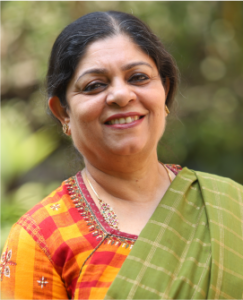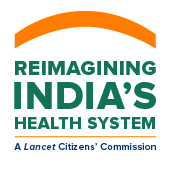In Conversation: Poonam Muttreja, Executive Director, Population Foundation of India
August 02, 2022

Growing up in New Delhi, I was exposed at a young age to poverty, to the disadvantaged position of women in our society, and to the discrimination faced by the poor, especially those belonging to marginalized communities.
I spent much of my youth in rural India, working with communities. I helped organize oppressed-caste leather workers into a cooperative society, so they could get a better price for their goods. I co-founded Dastakar, an NGO that sought to improve the economic status of Indian artisans and rekindle interest in India’s traditional arts and crafts. This led me to support the inception of several significant humanitarian organisations that dealt with India’s rampant poverty and inequality.
I served as the Harvard-MIT Women in Development Group’s chair from 1987 to 1988, organising events that focused on gender issues in low- and middle-income nations. In my 15-year stint at the MacArthur Foundation, as its first country director in India, I worked extensively to develop a network of civil society leaders in the areas of women’s reproductive health and sexual rights.
As the Executive Director of Population Foundation of India for over a decade, I have prioritised programmes that focus on improving health outcomes of women, young people and marginalized communities by working with the government, civil society organizations, academics as well as key influencers like the media.
I am the Chair of the Lancet Citizen’s Commission’s Citizen’s Engagement Workstream, one of the five workstreams that make up the wider mandate. By bringing together many viewpoints on the architecture of UHC, the workstream aims to improve people’s health outcomes. It attempts to bring together the voices of both individuals who receive and those who use health services.
The main obstacle to achieving UHC in India, in my opinion, is the existing gap between policy formulation and execution. Even though we have progressive policies, they are frequently not put into practise as intended and do not necessarily deliver the desired health outcomes, such as decreased health inequity. Inadequate funding for health care, poor care quality, and enduring gender-based disparities that frequently prohibit women from receiving health services are some of the causes of these implementation gaps.
The COVID-19 exposed a weak public-health infrastructure, along with a dire shortage of manpower. Not only do we need a robust public health system, but for tertiary care, the role of the private sector is unavoidable. We must therefore ensure that the sector is adequately regulated.
The beginning of interstate and inter-regional gaps in health and development indices is another significant obstacle to achieving UHC in India.
The Commission represents a groundbreaking effort to expand the notion of healthcare and incorporate the perspectives of those who use health services. It truly represents the voice of the community in letter and spirit. The Commission’s research focuses on the specific barriers to healthcare encountered by different demographic groups, as well as ways to remove these barriers and identify practises that need to be scaled up. In order to achieve UHC, the research and activity of the Commission will be crucial in guiding health-related policies and programmes with the perspectives of citizens.
